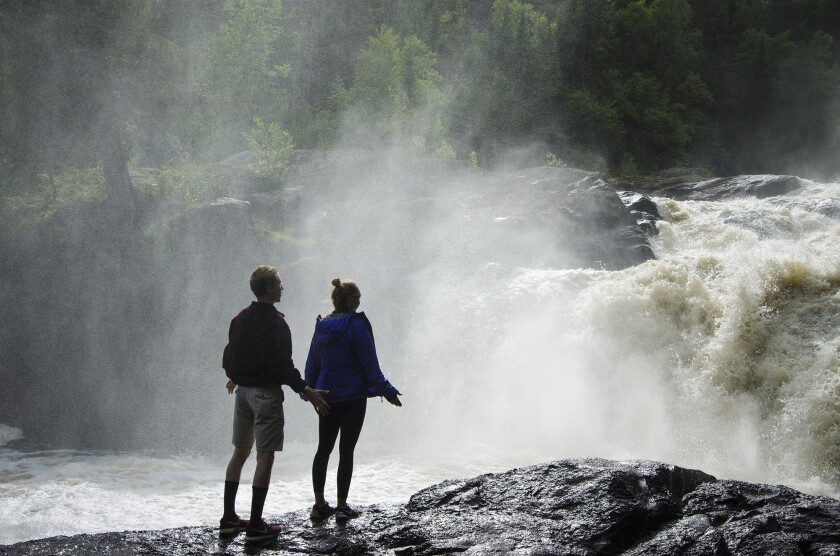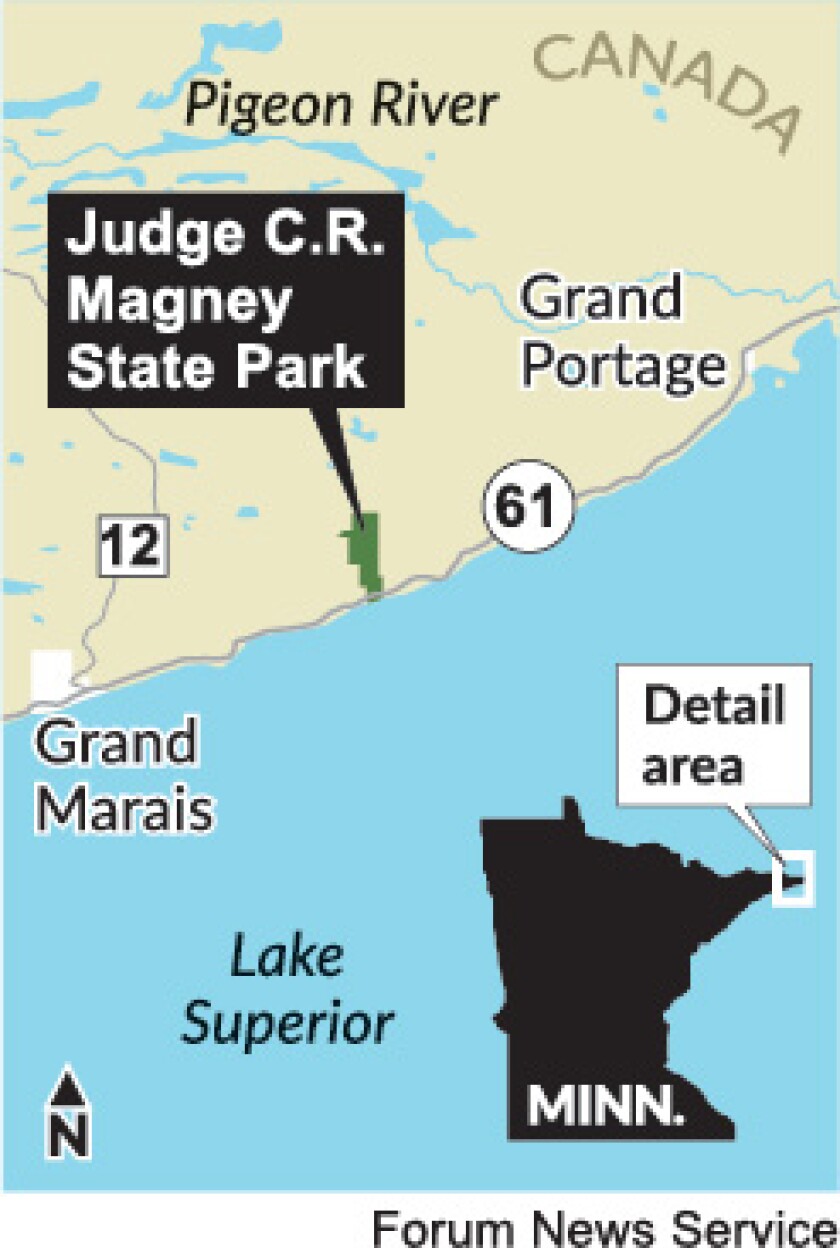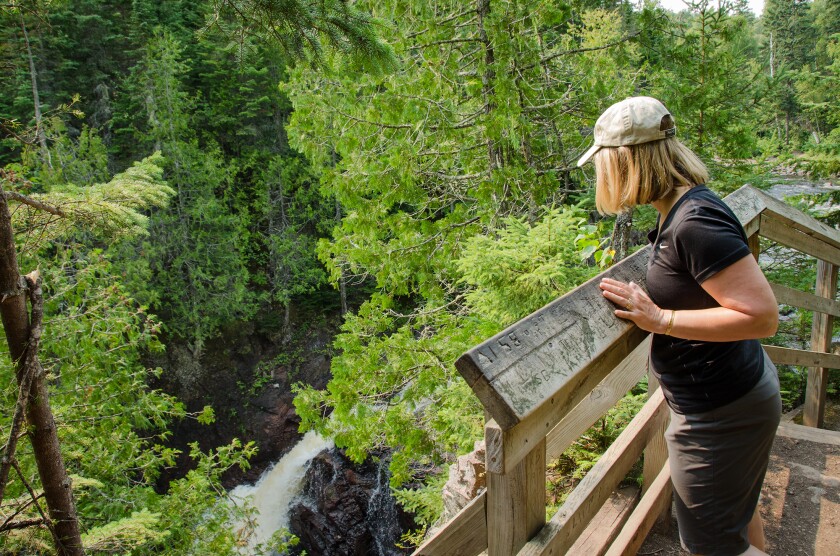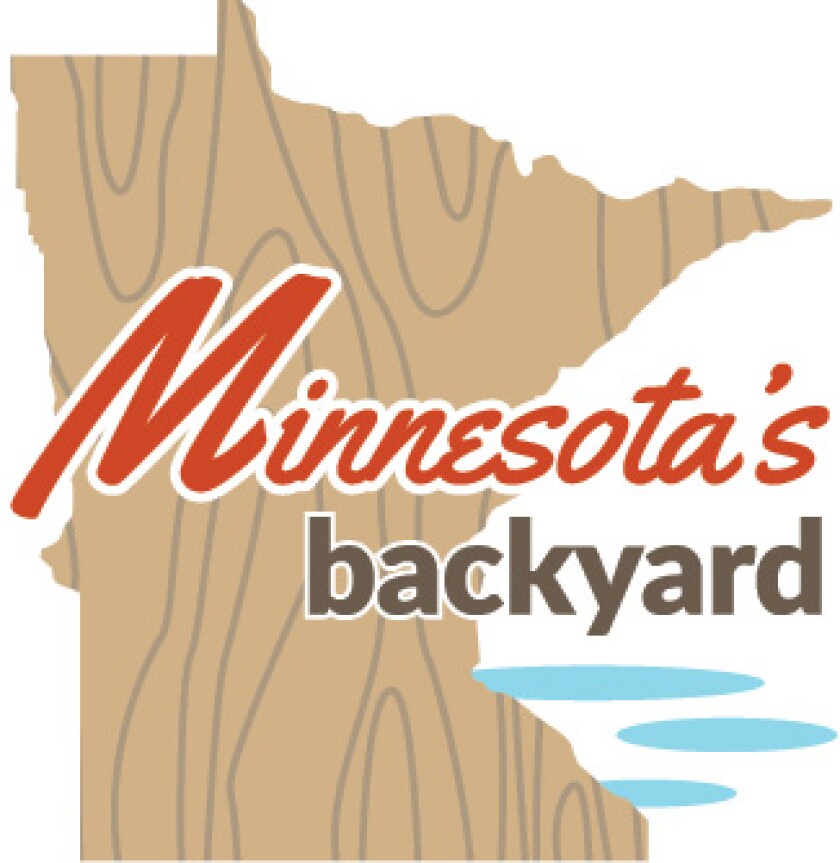HOVLAND, Minn. -- For generations, people around the world were fascinated by the mystery of the Loch Ness Monster -- a mythical sea creature that haunted the waters of a lake in Scotland. There were movies, books, documentaries and thousands of words written about this elusive and unexplainable being that could only be seen in far-off blurry photos of questionable origin.
Even when some of those photos were proved to be fake, the love for “Nessie” and the fascination with this creature that probably does not exist has hardly waned. That is the great thing about a beloved mystery -- even after it’s solved, it’s still fascinating to the public.
ADVERTISEMENT
In the remote reaches of the North Shore of Lake Superior, past the fudge shops and T-shirt sellers in Grand Marais, and less than 30 miles from Canada, is one of the most fascinating and beloved mysteries in Minnesota. And even though it may have been solved a few years ago, the public fascination with Devil’s Kettle Falls, located inside , persists.
Love bird-watching? Download this checklist before heading to the park
by
Source: Minnesota Department of Natural Resources
The state park is our 18th visit of 20 Minnesota state parks in our summer series, Minnesota's Backyard.
Visitors can hike a little more than a mile up from the lake, along the normally rushing Brule River on a trail that is stunning and challenging, until they reach one of the more fascinating waterfalls found anywhere. The Devil’s Kettle is so named because the river splits just above the waterfall, with half of the water tumbling down in a beautiful cascade, like countless other waterfalls around the world. The other half of the water flows into a massive hole in the rock and disappears.

ADVERTISEMENT
“Where does the water go?” That was the question asked by visitors and scientists alike for decades. Sticks and tennis balls and ping pong balls that went into the kettle were never seen again. Wild theories had the water somehow making its way to Canada, or the Mississippi River, or perhaps Middle Earth. Then, in 2017, hydrologists from the Minnesota Department of Natural Resources announced that the water flow above and below the falls were roughly the same, meaning that the water disappearing into the hole was most likely re-emerging downstream just a short distance later.

With that mystery seemingly solved, visitors still flock to this unique spot, although the remote location means that crowds are rare. Judge Magney is located on the , and the few dozen sites in the campground are popular resting spots for those making the full 300-plus mile journey.
This scenic stretch of land was originally home to a work camp during the Great Depression, and in 1957 it was designated a state park. Originally named Brule River State Park, in 1963 the land was renamed in honor of a former Duluth mayor and one-time justice on the Minnesota Supreme Court who played a role in establishing nearly a dozen state parks and waysides along the North Shore.

ADVERTISEMENT
Notable nearby
Camping is popular along the North Shore, both at the many state parks and at private campgrounds that dot the landscape between Duluth and Grand Portage. But if you’re looking to splurge on lodging, one of the most notable historic lodges in Minnesota sits just outside the Judge Magney State Park boundaries, where the Brule River meets Lake Superior.
Established nearly a century ago, is an architectural gem featuring views of the lake, a renowned kitchen, unique rooms and perhaps the most uniquely-decorated dining room anywhere in the region. This family-run operation offers package deals for $470 and up which include two nights lodging and meals. But if you’re looking to do some work on your laptop or catch the Vikings broadcast during your stay, look elsewhere. Naniboujou is proudly media-free, meaning no wifi, no televisions, no radios and no phones on the premises.
A downloadable map of the park
by
Source: Minnesota Department of Natural Resources

ADVERTISEMENT













